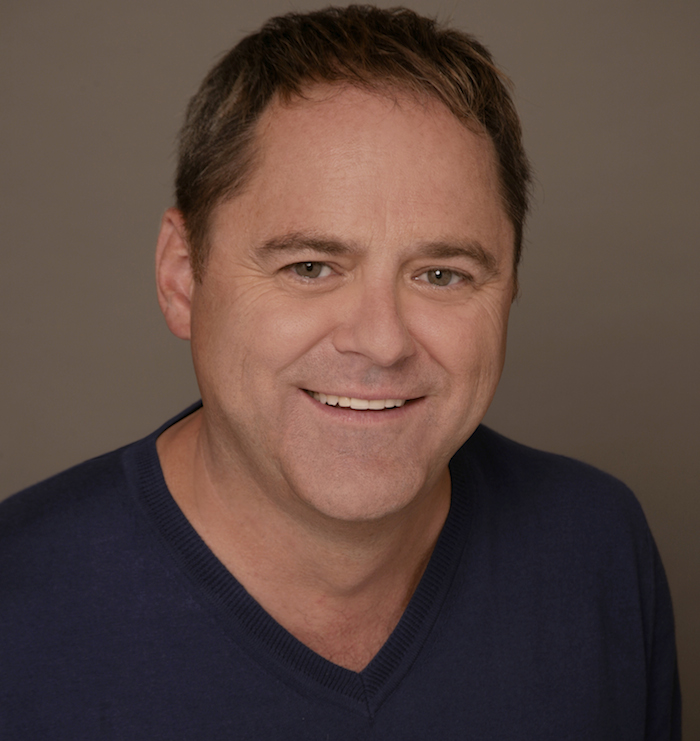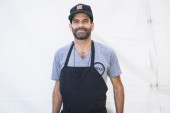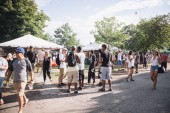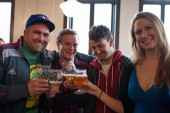
With Toronto’s Festival of Beer happening this weekend, we chat with the festival’s president, Les Murray. We talk to Murray about buying into the festival sight unseen, the challenges of running an event that sees 30,000 visitors each year and and how the festival has changed over the last 20 years.
For those interested, we’re giving away tickets to the festival through our Facebook page.
In four sentences or less, tell us who you are and what you do for a living.
My name is Les Murray. I’m the owner and operator of Toronto’s Festival of Beer. It’s a festival that’s been going on for 20 years now, and every year I see it continue to grow. This year, we’re showcasing almost 400 different brands of beer—in fact, we’re probably at the highest number of exhibitors we’ve ever been.
Some of the unique features of this year’s festival include a world pavilion where consumers can taste beers that they’ve probably not had a chance to try out before. These are beers that are not readily available in Canada. We have to go through private ordering to obtain them.
We’re also doing a new brews section where we feature some of the brewers that are just coming onto the scene.
Beer is obviously going to be centre stage at Bandshell Park, however, we also have some great bands for everyone to check out, as well as great food. People are noticing that we’re not just about beer anymore.
Can you talk about your background and how you get involved with the beer industry?
I was born and raised in Etobicoke, and up the street from my house was a Labatt brewery. As a guy going into university and needing a summer job, I applied and got a position on their production line.
When I left university, they asked me to come on full-time. I took the opportunity and ran with it. I did a number of different things while I was there: I helped the company with its sports properties and entertainment, branding, and I was on the road doing sales for a number of years.
It was a great experience that helped me understand how a corporate environment works. I also got a sense of how a manufacturing environment works, and how everything comes together to produce a product. More importantly, it gave me a sense of how beer works from a manufacturer’s point of view.
I eventually left Labatt wanting to do something on my own. I hooked up with the founder of the festival and the person that would become my business partner. We struck up a personal and business partnership, and we haven’t looked back since. The festival is twenty years old now—I’ve only been involved for 10 years—and it’s amazing to see how much it’s grown in that time, and how the the industry itself has changed in that time.
From what I understand, I bought into the festival sight unseen.
(Laughs) I obviously loved the concept of it, but, for whatever reason, in those early years I never made it to the festival. Whatever timing it was being held at, it turned out I was out of town.
I remember the first time I walked into the festival and being like, “Oh, this is what it’s about.”
That said, it was the right move because it allowed me to expand from being a brewer within the industry to someone that explores the whole category of beer. In that respect, it’s been a great ride. I have a love of beer, music and food, and the festival allows me to combine those passions into a single event.
If you had to narrow it down to one thing, what do you think has been your mark on the festival?
I think it’s been my ability to move the event away from what felt like a very young, party-like environment and move it to more of a true sampling experience.
We accomplished that with a combination of more product and by pairing that product with great food purveyors. Moreover, we added an element of programming to the festival. So, over the last couple of years we’ve added a brew school where festival goers can, for example, learn what beers pair well with what foods.
I mentioned the world pavilion earlier and we’ve been doing that for three years now. We first featured Quebec, then we went to the west coast and now we’re featuring the east coast. Next year, my game plan is to feature Ireland, as it’s seeing tremendous growth in its craft brewing sector.
You’ve talked a lot about things you’ve done well, but what are one or two things that you think the festival could be doing better?
The beautiful thing about the festival is that it happens every year, and, as I like to say, we get a mulligan because of that. That is, we have a chance to work on the things we did not do well.
We do a debrief at the end of each festival where I go and talk to as many brewers as I can. I try to do it shortly after the festival so that it is still fresh in their minds. We talk about the various aspects of the event—whether it be the music programming, the brewmaster series, or something as simple as what we could do from a production standpoint—to find out how I can make things easier for the brewers.
Anyway, I think we do a very good job of finding ways to improve the festival, and I’ll give you an example.
A number of years ago our brewers told us that they were having difficulty engaging with festival goers. It was sometimes so busy that it was difficult for them to talk to the people sampling their beers.
Besides providing our brewers with additional festival badges, we created the brewmaster series so that the brewers could engage with consumers one-on-one in a more quiet setting. We also created a special ticket for those consumers that wanted a more educational experience. The ticket allows 2000 consumers to enter the festival grounds an hour-and-a-half before we open the festival to those with general admission tickets.
I would say that we’ve done a great job of listening not only to our consumers but to our brewers as well. It’s obviously an ongoing process, and we haven’t figured it all out. Consumer tastes are constantly changing and it’s our responsibility to give them the best experience possible.
What’s the most challenging part of your job?
I think the most challenging part of my job is trying to fit everyone in. We’re limited by the space we have available to us; there are not a lot of great outdoor spaces in Toronto. Of course, we could move the festival to an indoor venue, but I think it would lose its magic that way.
During a summer event, consumers want to be outdoors. They want to enjoy the sun, especially after the winter we had. So the challenge for myself is trying to fit everyone in, especially as our industry continues to grow. That said, it’s a great challenge to have.
As an insider, where do you see the beer world going next?
What I see is a lot of people homing in on to the things they’re adding to their beer—so watermelon is one example. I think there’s a growing market for beers that incorporate ingredients like that. I mean, I’m drinking a Radler.
You know where Radlers came from, right?
No, I actually don’t.
Radler is the German term for cyclist.
German cyclists going down a mountain would stop for lunch, and because they didn’t want to get full or bloated when they still had part of their cycling run to ride out, they would mix their beer with grapefruit juice. The grapefruit lowers the alcohol content of the beer, and also makes it more refreshing. As Germans do, they found a way to brew a beer in that capacity.
So I see that style of beer continuing to evolve.
You will also see the continued growth of small format brew pubs.
Favourite beer?
Cold, ready and available.
What’s next for you personally and professionally?
Personally, I have two girls in university and so I’m looking forward to watching come in to their own and starting their own careers.
From a business standpoint, I love producing shows, so I’m hoping there’s an opportunity to parlay that into even more opportunities. This spring we did a show called the Beach BBQ and Brews Festival. Again, it combines some of my passions—barbecue, beer and music—and this year it was our sixth year doing the festival. It’s a totally different event. It’s more of a family event where mom, dad, the kids and the dog can come out, enjoy the food and learn more about barbecuing.
I would love to build the Beach BBQ and Brews Festival into one of the city’s great yearly events.
This interview has been edited and condensed.
Toronto Standard is proud to be a media partner of Toronto’s Festival of Beer.
____
Igor Bonifacic is the managing editor of Toronto Standard. Follow him on Twitter.
For more, follow us on Twitter and subscribe to our newsletter.














